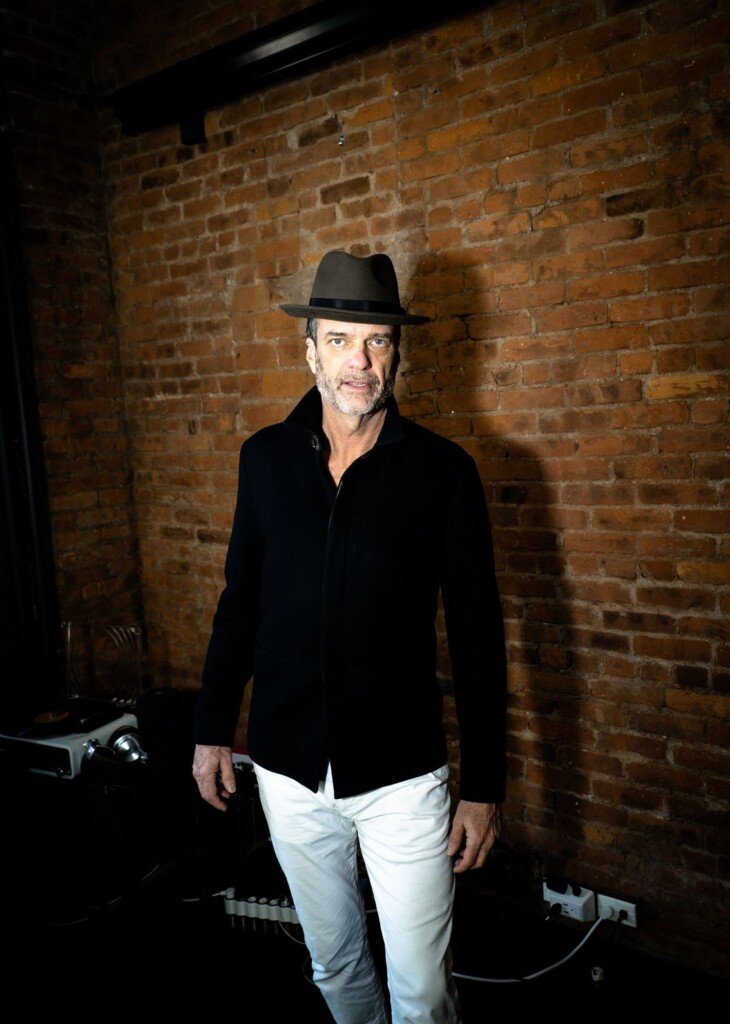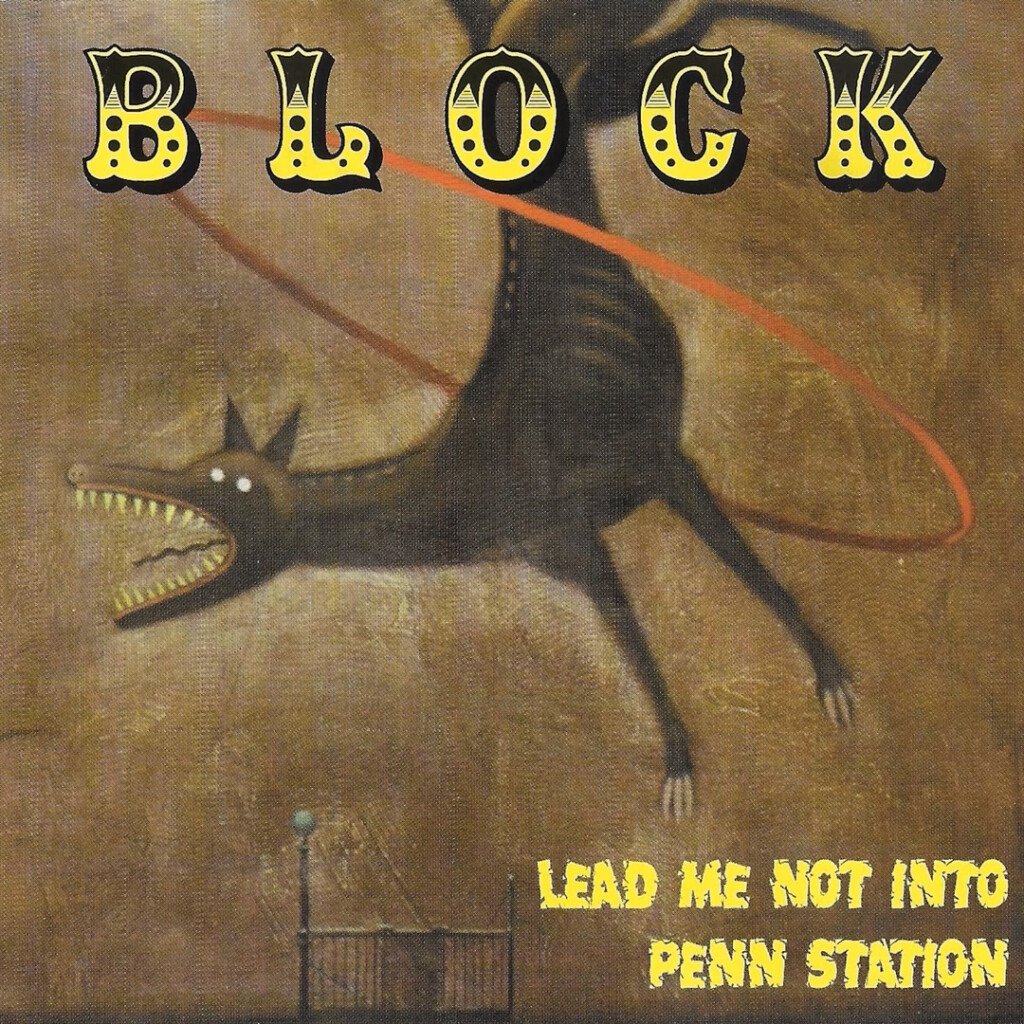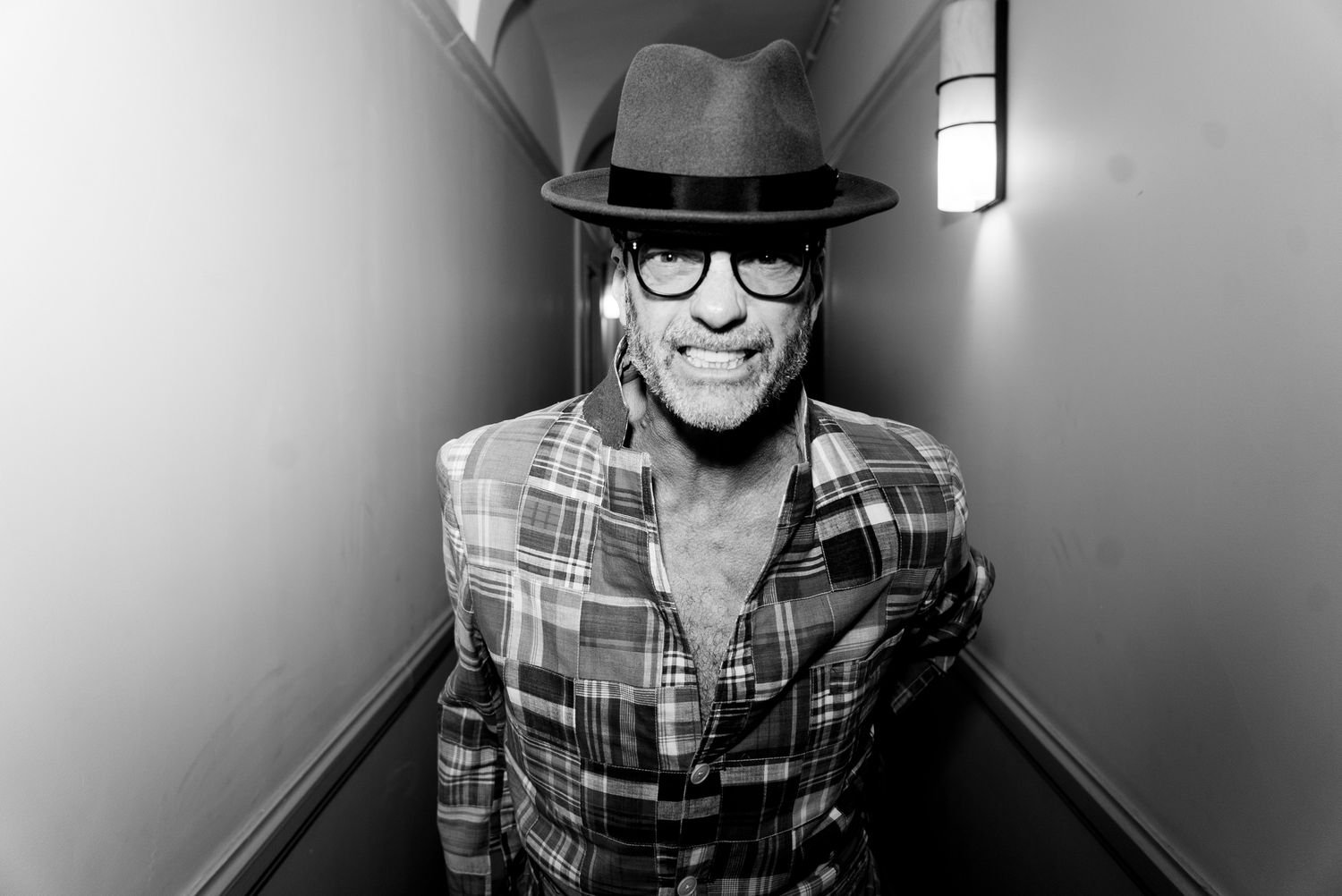It’s rare when a record rides the wave of an entire genre, rarer still when that record launches and defines one. Block’s underground cult-hit record Lead Me Not Into Penn Station was originally released in 1996 as a handout at shows and out of the back of Block’s car, and in the end, helped launch the anti-folk movement, cementing the artist as a pioneering force. Today, Block’s influence can be felt in every corner of modern indie, folk-punk, and lo-fi songwriting. Now, Meridian (ECR Music Group) completes its celebrated four-part, remastered-and-reissued series of Block’s storied recording catalog with the release of Lead Me Not Into Penn Station—an album seeing its first release in the streaming era (and first true release, ever). Painstakingly mastered from the original recordings by artist, producer, and ECR Music Group President Blake Morgan (Lenny Kravitz, Grace McLean, Lesley Gore), this historic genre-defining gem originally launched Block’s career, getting him signed by Glen Ballard (Alanis Morissette, Dave Stewart) to Ballard’s then nascent Java Records (Capitol) as the label’s first artist. Check out the exclusive interview below:

1. Your roots can often shape your journey. Can you share a story or moment from your early life that had a significant impact on your path into music?
BLOCK: When I was in second grade on Long Island, sitting in the backseat of the station wagon, I remember very distinctly hearing “Walk On The Wild Side” come on the radio. I’d never heard anything remotely like it. I was like, “What is this??” My sister turned around from the front seat and said with distain, “Don’t you know? It’s Lou Reed.” It was at that very moment I realized there was an another world that existed outside upper middle-class suburbia—and I was gonna find it!
2. Did your musical journey begin with formal training, or was it more of a personal exploration? How has that shaped your unique approach to your craft?
BLOCK: I mean, I took piano lessons in first grade for a year or two. Is that formal training? I guess I’m an autodidact—I haven’t burdened myself with music theory or notation skills. I bought my first guitar when I was 18 and a freshman in college, and took it from there.
3. Who were some of the most influential figures in your early musical life, and how did they inspire your sound? Also, what’s the story behind choosing the name ‘BLOCK’?
BLOCK: I always gravitated toward solo artists. Poets I suppose who happened to also be holding a guitar: Woody Guthrie. Bob Dylan. Lou Reed. Nick Drake. Sort of the usual list.
4. For most artists, originality is first preceded by a phase of learning and, often, emulating others. What was this like for you? How would you describe your own development as an artist and music maker, and the transition towards your own style, which is known as FOLK?
BLOCK: Well, I think this is true. When I first got to New York, I booked a weekly gig on Bleecker Street at a place called the Red Lion, on Monday nights from 10pm to 1am. I was expected to be a sort of jukebox for a drunken crowd. As a consequence, I had to learn tons of songs I wouldn’t have otherwise, and eventually I started slipping in some of my own.
5. Music often transcends entertainment. What’s your view on the role and function of music as political, cultural, spiritual, and/or social vehicles – and do you try and affront any of these themes in your work, or are you purely interested in music as an expression of technical artistry, personal narrative, and entertainment?
BLOCK: I think one of the aspects of being an anti-folk artist is that we don’t spend a lot of time thinking about how our music affects much of anything. Culture or otherwise. I write because I’m trying to discover things about myself and express conflicts and fears and heartbreaks. And I write the songs for my friends.
6. Do you feel the rewards of your musical career match the energy and passion you invest in it, or are there different kinds of fulfillment you’re still seeking?
BLOCK: The reward is the opportunity to do the work. That’s the reward. Any external confirmation, whether it be praise or remuneration, can get someone sidetracked. The reward is that I get to do it.
7. Can you walk us through your creative process? From the first spark of an idea to the finished track, what’s the most essential part of your process, and how do collaboration or external influences shape your work?
BLOCK: Usually, the first part of a song just comes from nowhere. I don’t really know where it comes from. I’m sitting with my guitar and when I least expect it, a melody and a few words and chords appear from the ether. That’s the easy part. But working on the song to finish it after that is the hard work. Constantly editing and questioning, and trying to improve the song.
8. What’s been the most challenging hurdle in either your personal life or music career, and how has it shaped you as an artist?
BLOCK: In 2009, I went to rehab and I got sober. That was 16 years ago. Definitely the hardest thing I’ve ever done. It’s probably the only reason I’m still alive. I’m very grateful for that. These are all stolen days.
9. On the flip side, what moment or achievement in your career so far has made you feel the proudest, and why? And let’s talk about your latest release and future plans.
BLOCK: Seeing these reissues all coalesce on my Spotify profile. These five records now. The body of work they represent. That’s been super gratifying. And now I have a record coming out early next year. Don’t call it a come back!
10. With social media having a heavy impact on our lives and the music business in general, how do you handle criticism, haters, and/or naysayers in general? Is it something you pay attention to, or simply ignore?
BLOCK: I’ve chosen to take the position I think Andy Warhol would’ve taken. You just embrace this stuff. You can’t stop it. You embrace it and you use it in creative ways. We can all make a feature film now with the phone in our pocket or write a symphony on our computer. The barrier to entry used to be unscalable, but now everybody can make all kinds of interesting art. I think this is a good thing.
11. Do you think is it important for fans of your music to understand the real story and message driving each of your songs, or do you think everyone should be free to interpret your songs in their own personal way?
BLOCK: Once I write the song and record it. I’m done with it. The interpretation is now for somebody else to have. Or to make up. It’s always interesting to me. How folks can have a very different experience than the one I was having when I wrote the song.
STAY IN TOUCH:
FACEBOOK | INSTAGRAM | SPOTIFY | WEBSITE | YOUTUBE


